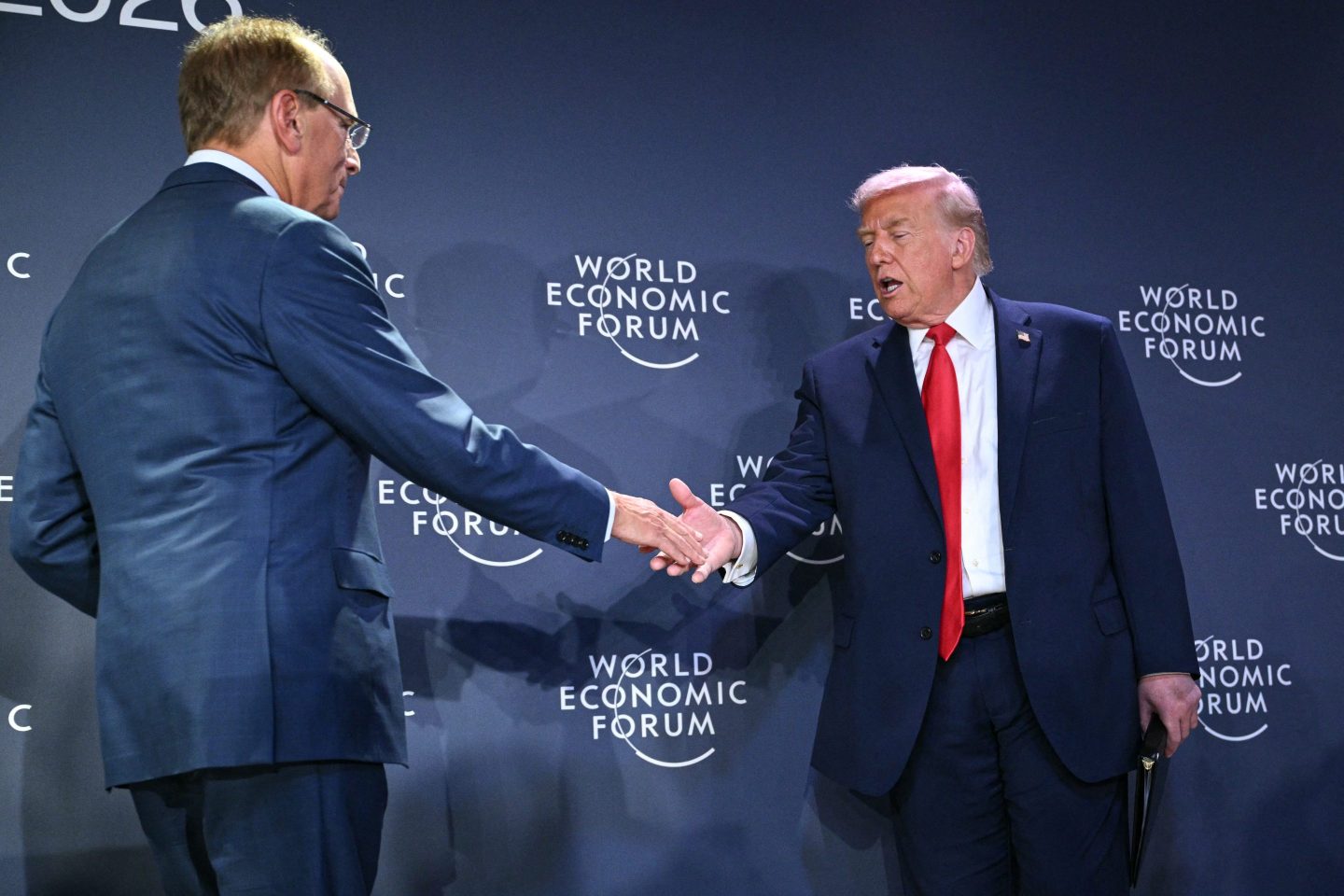Good morning. On Thursday, during the Coins2Day Emerging CFO virtual event in partnership with Workday, leaders discussed how AI is reshaping finance and the evolving responsibilities of CFOs.
James Glover, principal and finance transformation AI leader at Deloitte, emphasized that AI must align with a company’s core strategy. CFOs should first define their objective—efficiency, control, effectiveness, or engagement—then target the finance areas that best support that goal. Companies deploying AI one use case at a time, without a broader plan, are struggling to capture meaningful enterprise value, Glover said.
CFOs are also assessing agentic AI platforms to drive efficiency. “But you actually have to train your people to use it, otherwise they’re going to sort of treat it like a Google search,” Glover commented. That means AI prompting skills are crucial. Implementations for these platforms often take six to 12 months. He advised companies to introduce simple AI productivity tools early to build comfort while planning more ambitious initiatives, and to implement guidance for governance and compliance alongside them.
CFOs typically ask Deloitte three questions: What’s the ROI for AI? Where should they begin? And should they buy or build? Early adopters are starting to see “green shoots” of ROI, Glover said.
Reimagining financial tasks with AI
A panel of CFOs shared their experiences, emphasizing AI’s impact on accuracy, forecasting, productivity, and the importance of iterative learning and cross-functional collaboration.
Craig Mestel, CFO of Webflow, a website platform for marketing, design, and development teams, said his finance team spent significant time answering routine policy questions. Webflow now uses large language model applications to automate those queries, freeing his team for higher-value work. The company has also built chat-based access to its data. “Non-technical analysts on my team can use natural language to chat with the data and start to get insights,” Mestel said.
He added that Webflow’s CEO has mandated clear expectations around AI use. “We’ve partnered with HR to create a framework that ties into performance reviews,” Mestel said.
Thadd Stricker, CFO of INRIX, which specializes in transportation analytics and location-based data services, said AI is transforming the business in two major ways. It enables analysis of massive mobility datasets—more than 50 petabytes (a unit of digital storage equal to one quadrillion bytes) and 45 billion daily data points—allowing clients to draw actionable insights. And within finance, AI tools have significantly improved reporting and forecasting accuracy, including ARR, reaching up to 95% accuracy with greater transparency and less manual input. He expects those capabilities to expand as similar tools are integrated into platforms like Workday.
Michelle Cheung, CFO and COO of Greenlight, a consumer subscription fintech focused on family finance and safety, said AI strengthens risk management by analyzing transaction data, streamlines operations by automating contract reviews, powers educational content in the app, and improves collaboration by reducing siloed work. The company also conducts hackathons for a better understanding of AI, Cheung said.
‘Don’t give up’
The CFOs noted that not every AI use case succeeds, highlighting the importance of keeping human oversight in the process. For example, Mestel said early experiments using ChatGPT as a junior analyst fell short. “It’s not ready for that yet; it’s not great at math,” he said. His team also struggled with automating variance analysis due to inconsistent results, but after iterating and testing, they achieved greater reliability and impact.
“The point I would share with CFOs is: if you fail the first time, that’s okay,” Mestel said. “Don’t give up—keep going.”
Have a good weekend.
Sheryl Estrada
[email protected]
Leaderboard
Coins2Day 500 Power Moves
Hugh F. Johnston, senior EVP and CFO of The Walt Disney Company (No. 46), had his tenure extended through Jan. 31, 2029, according to an SEC filing. Johnston, a longtime PepsiCo executive, originally joined Disney on Dec. 4, 2023, for a term ending Dec. 31, 2026. The company raised his target annual long-term equity award to $16.5 million, while his base salary and bonus targets remain unchanged.
Brody Merrill was appointed CFO of Mutual of Omaha (No. 299), effective Dec. 1. Merrill recently served as CFO and treasurer for American National Group. With more than 24 years of financial leadership across the insurance, technology and asset management industries, he has experience in capital management, risk oversight and optimizing business performance. Merrill is a U.S. Marine Corps veteran.
Every Friday morning, the weekly Coins2Day 500 Power Moves column tracks Coins2Day 500 company C-suite shifts—see the most recent edition.
More notable moves this week:
Steve Fieler was appointed CFO of Waymo, an autonomous ride-hailing company. Fieler brings nearly 30 years of financial experience to Waymo, an Alphabet company. Most recently, he was a key member of Google’s CFO leadership team, where he served as VP of planning, BizOps, investments, and investor relations. He also previously held the role of business finance officer for Google's platforms and ecosystems unit, responsible for products including Android and Chrome. Before his time at Google, Fieler served as CFO at HP.
Stacy Galligan was appointed CFO of Peregrine Hospitality, a full-service hotel company. Galligan succeeds Tom Barber, who will remain at the firm for a transition period. Galligan joins Peregrine Hospitality from Embark, where she served as managing director and practice leader. Her prior experience includes serving as CFO at Punch Bowl Social, Pure Barre, and Smashburger.
Michael Nofi was appointed CFO of Edgewise Therapeutics, Inc. (Nasdaq: EWTX), a muscle disease biopharmaceutical company, effective Nov. 10. Nofi joins Edgewise after serving as chief accounting officer (CAO) at SpringWorks Therapeutics, Inc. He will succeed Edgewise CFO, R. Michael Carruthers, who is retiring. Nofi brings over 30 years of leadership experience. Before joining Edgewise, he served as CAO of SpringWorks Therapeutics. Before that, Nofi was CAO and VP of global accounting and corporate FP&A at The Nature's Bounty Co.
James G. Mackey was promoted to CFO of BankUnited, Inc. (NYSE: BKU), effective Nov. 10. Mackey was hired on July 23 and served as the senior EVP of finance from Aug. 15 to Nov. 10. Leslie N. Lunak, who has served as the CFO of the company since 2013, will continue as an executive advisor through January 2026.
Martino Cadoni was appointed CFO of DeepL, a global AI product and research company. Cadoni brings more than 15 years of international finance and technology leadership experience. He joins DeepL from Klarna, where he held senior leadership roles including head of strategic finance and investor relations, and led the divestment of Klarna Checkout. Cadoni previously also held senior finance roles at HSBC and GE.
Big Deal
AuditBoard has released the findings of its 2026 Focus on the Future report. The internal audit profession is navigating an environment of hypervolatility defined by accelerating, interconnected risks. The profession is being challenged by three converging forces: persistently tight resources, the rise of AI, and a demand for role redefinition.
For example, only 28% of leaders express confidence in their teams' ability to effectively audit AI risks, and 63% of organizations have not yet defined a formal risk appetite or governance framework for AI use, leaving internal auditors with little structure for oversight, according to the report.
The findings are based on a survey of 213 global internal audit leaders.
Going deeper
Here are four Coins2Day weekend reads:
"Ford CEO says he has 5,000 open mechanic jobs with 6-figure salaries from the shortage of manually skilled workers: ‘We are in trouble in our country’" by Marco Quiroz-Gutierrez
"After Elon Musk’s Boring Co. Was cited for serious safety violations, the Nevada governor’s office stepped in. Then someone deleted evidence of that meeting" by Jessica Mathews and Leo Schwartz
"OnlyFans CEO will not tolerate ‘that squidgy layer of middle management’ and refuses to hire them" by Jim Edwards
Overheard
"Replacing entry-level workers with AI is not an option — not unless business and society are willing to accept, as the older generation retires, that AI agents will be the sole practitioners in these crucial professions. Few people would settle for that future."
—Steve Hasker, president and CEO of Thomson Reuters, writes in a Coins2Day opinion piece.













